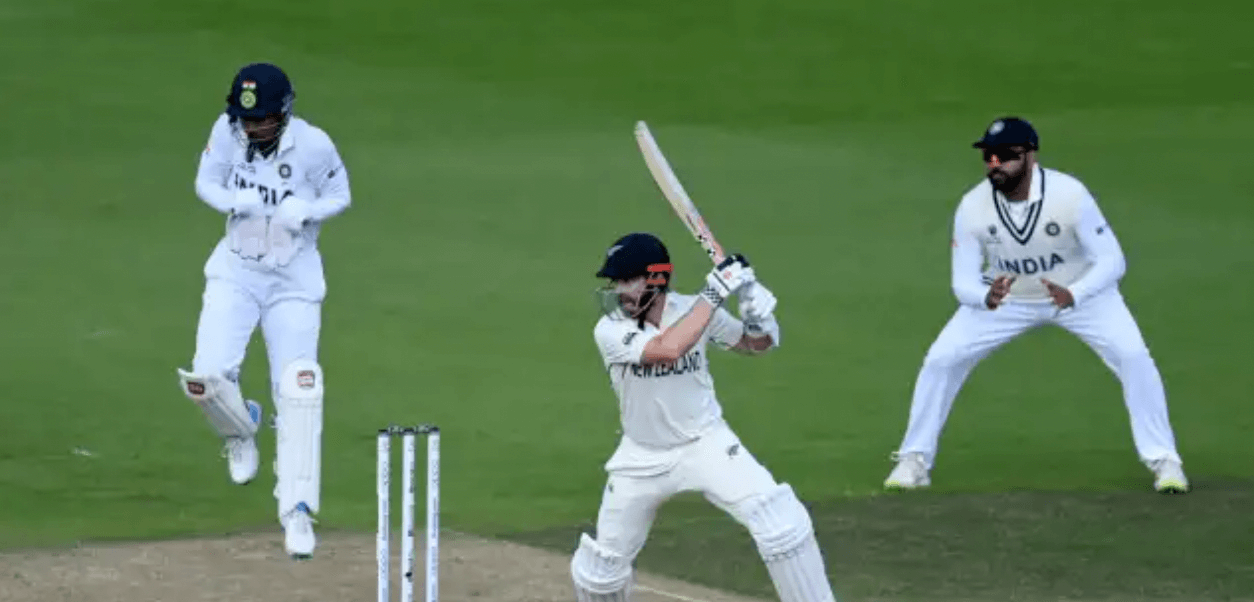When it comes to performance, there’s no room for error. Even the slightest mistake can have disastrous consequences – just ask any cricket team that has ever let its guard down during a match. To excel at this game, you need to be fully committed and well-prepared. You also need teammates who are willing to cover one another’s backs at all times.
In short, you need a team with good chemistry and great camaraderie. It’s essential for every player on your team to understand their role and know how best to fulfill it. Each individual must also be able to trust the others with their backs turned. Great teams are made up of players who trust and support one another in everything they do.
Good communication is essential for successful teamwork. It helps to keep everyone on the same page and ensure that everyone understands their role and the role of their teammates. It also encourages collaboration and can help build trust and respect within the team.
If you want your cricket team to succeed, these critical features will help immensely.
Good Communication
Communication is the foundation of every successful team. Open and honest lines of communication will keep your team feeling connected and engaged. It will also help with better understanding, collaboration, and decision-making. When you have a team that can freely communicate with each other, you’re able to solve problems more quickly and make better decisions as a result.
There are a number of ways to ensure that your team members can communicate effectively with each other:
- Good communication involves listening and speaking, so it’s important to give everyone the opportunity to have their say. Encourage your team members to speak up when they have an idea. Let them know that you want to hear from everyone.
- Set aside time for regular team meetings during which you discuss team goals, review progress, and identify areas of improvement.
- Team members can offer their insights and discuss any problems they have. It’s also important to be open to different opinions and ideas and not to be too quick to judge.
- Encourage your team members to communicate with one another outside of meetings as well.
Be A Good Communicator
When communicating with your team, it’s important to be clear and concise. Avoid using jargon or technical terms, and make sure everyone understands the messages you’re trying to convey. It’s also important to be open and honest with your team, as this will foster a sense of trust and understanding.
- Good communication also involves setting clear expectations and goals. This helps to keep everyone focused and motivated. It also helps to set achievable deadlines and to provide regular feedback so that everyone knows where they stand.
- It’s important to recognize and appreciate the efforts of your team members. Acknowledging their hard work and contributions helps to foster a sense of camaraderie and can help keep morale up.
- Good communication is key to successful teamwork. It helps to ensure that everyone understands their role and responsibilities, as well as the goals and expectations of the team. It also encourages collaboration and trust and helps to keep morale up.
Solid Cohesion
Successful teams are cohesive units that work together to achieve a common goal. They don’t just have strong communication skills; they have strong interpersonal skills as well.
Competent team members know how to work together, trust each other, and rely on one another. They are willing to step outside of their comfort zones in order to support each other. This is especially important during challenging times when the team faces setbacks or obstacles.

There are several things you can do to strengthen the cohesion of your team:
- Encourage your team members to get to know each other as people, not just as team members. Let them know that you want them to create meaningful connections with each other.
- Set up regular team-building activities that help your team members learn from each other and forge new relationships.
- Get your team involved in a cause outside of the cricket field. Doing so will help your team members see that their work extends beyond the cricket field.
Strong Leadership
Good teams are led by strong and capable leaders who know how to motivate team members, set goals, and help them achieve success. If a team leader is not doing their job, it will negatively impact the team.
Before you can become a good leader, you need to first understand what it means to be a team member. You need to know what it’s like to be on the receiving end of a leader’s decision-making. Becoming an effective leader doesn’t happen overnight.
You need to earn your teammates’ trust by working hard, taking initiative, and communicating clearly. You also need to develop a strong understanding of what your team members need in terms of support, training, and feedback. Once you have this understanding, you can begin to make decisions and take action that benefits your team.
Becoming a strong leader requires a combination of effort and dedication. It starts with understanding the core values of leadership and developing the necessary skills to lead a team effectively.
- To become an effective leader, first, you need to be self-aware and honest about your strengths and weaknesses. Knowing your strengths and weaknesses will help you develop a plan to improve upon both.
- You must also be willing to take risks and make decisions even if there is a chance you may fail. It is also important to be open to feedback and criticism from your peers and subordinates.
- As a leader, you must also be able to communicate your vision and goals to your team in a clear and concise manner.
- Lastly, a strong leader must lead by example and be willing to motivate and inspire their team. By following these tips, you can become a strong leader and foster a productive and successful team.
Dynamic Skill Diversity
Successful teams have members who are skilled in a variety of areas both on and off the cricket field. Every cricket player must excel at their primary skill (batting, fielding, or bowling). They should also be well-rounded enough to perform backup roles when needed. This is especially important for batsmen who must sometimes field or bowl.
You can improve skill diversity on your team by first assessing each team member’s current skill set. Then, use this information to schedule training sessions that help your team members become more well-rounded.
Finally, encourage your team members to broaden their cricket horizons. Let them know that it’s important for every player to know how every other position on the field works.
Consistent Strategy
As a sports enthusiast, there is nothing more exciting than watching a cricket match, especially when the team performs at its best. But what sets a great team apart from the rest is the consistency in its strategy. A consistent strategy means that every team member is on the same page and clearly understands their roles, responsibilities, and objectives.
When it comes to cricket, having a consistent strategy is crucial to winning matches. Each player has a specific role to play, and they must understand how their role fits into the team’s overall strategy. This means the team needs to have a clear game plan, which they should stick to throughout the match.
Consistency in strategy also means that the team is able to adapt to changing situations during the game. For example, if the opposition is playing defensively, the team needs to be able to adjust its strategy accordingly. This requires good communication and teamwork, which can only be achieved if everyone is on the same page.
Consistent strategy is essential for success in cricket. It ensures that every member of the team is working towards a common goal and that they can adapt to changing circumstances. With a solid game plan and good communication, any team can achieve greatness on the cricket field.
All teams have their own strategy for success. Some teams rely on aggressive tactics while others prefer to play a more conservative game. No matter what your team’s strategy is, it needs to be consistent. This means that every member of the team knows what strategy they should be following. It also means that the team is able to follow this strategy successfully during every match.
You can help your team develop a consistent strategy by first identifying what type of team you want to be. Then, hold team meetings to discuss your strategy and explain how it can be applied to current and upcoming matches.
Eventually, make certain your team members are following your strategy on the field. This can be done through one-on-one meetings, team meetings, and feedback sessions.
Solid Defense
Defense is just as important as offense. If you’re vulnerable on one side of the field, you’re vulnerable on both. Your team needs to be able to stop their opponents from scoring points just as well as they’re able to score them.
Your defense is made up of many different components, including bowling, batting, and fielding. You can improve your team’s defense by first assessing your team’s current defense.
Then, use this information to schedule training sessions that help your team members become stronger on defense. Finally, make sure your team members are following your defense strategy during every match.
Quality Training
Strong teams are teams that continue to get stronger as the season progresses. They don’t rest on their laurels; they keep getting better, even when things are going well. This happens because they are always training and improving their skills.
You can help your team become stronger by scheduling regular training sessions that focus on particular skills. These skills can include batting, bowling, fielding, and fitness. You can also help your team members improve their skills by creating an open environment where they feel comfortable asking questions.
Expertise in Key Skills
No cricket team is perfect. Every team has a few weak spots. However, these weaknesses can be overcome if players have expertise in key skills. For example, your team might be strong in batting but weak in bowling. In this scenario, the team can rely on members who excel at bowling to plug the holes.
You can improve key skills across your team by first identifying the weakest areas. Then, schedule training sessions that help your team members become more proficient in these areas. Make certain your team members are following their skill strategies during every match.
Synchronized Movement
Strong teams don’t just rely on one or two-star players. They rely on every player playing their role to the best of their ability. If you rely too heavily on one or two players, you put too much pressure on them. This can lead to mental and physical burnout. It can also lead to your team falling short of expectations.

You can improve synchronized movement across your team by first assessing the current movement. Then, use this information to schedule training sessions that help your team members become stronger as a team. Then, you need to make sure that your team members are following your synchronized movement strategy during every match.
Good Chemistry And Great Camaraderie: The Glue That Holds Everything Together
Like any organization, a cricket team needs to be led, managed and nurtured to perform at peak potential.
To create an excellent cricket team, you need:
- dedicated players who are willing to commit time and energy to practice and matches
- individuals who are adaptable to change
- teammates who are reliable and accountable
- men (and women) with a range of skill sets
- and lastly but most importantly people who have the right attitude.
Ways to Be a Good Team Member in Cricket
There are many different ways to play cricket. It can be as simple as knocking a ball about in your backyard, or it can involve a lot more strategy and complex rules like in social club matches or professional leagues.
Whatever the level you play at, being an effective team member is important for any team – and we’ll explain why!
When you’re a team player, your teammates will thank you for making their lives easier. But when you’re a bad team member, your teammates won’t be able to wait until the end of the match to tell you.
Without a good team dynamic, any game can fall apart. It doesn’t matter how skilled the players are individual; if they don’t function cohesively as a unit, things will go south fast.
Without trust and support from teammates, it’ll be difficult to succeed in cricket or in any other team-driven sport. After all, no one enjoys being on a losing team – especially when that loss is caused by someone else not doing their part.
Whether your team is made up of friends or people you just met yesterday, here are the ways to be a good teammate in cricket:
-
Be on time
In any sport, the game will go on whether or not you show up on time. You might think that being a little late is no big deal, but it is a big deal to your teammates. Being late shows a lack of respect for others – something that you’ll need to be careful about if you want to be a good team member.
If you have a legitimate reason for being late, let your teammates know. If you forget to set your alarm and miss practice entirely, that’s a whole different ball game. Being late once or twice is usually OK.
Being chronically late, however, will get you in serious trouble with your team.
-
Be supportive
If one of your teammates misses a goal, you don’t have to scream at them until they burst into tears. But you do need to be constructive when you critique them. Let them know what they did wrong so they can improve.
If your teammate misses a few goals, though, you should be supportive. Let them know that it happens to everyone and that they’ll do better next time. If a teammate is really struggling, help them work on their skills so that they’ll be ready for the next match.
As you can see, your support doesn’t have to be verbal. When you support your teammates, you’re letting them know that you’re there for them. You’re letting them know that you want them to succeed, even if it means that you won’t be on the winning team.
-
Don’t hog the ball
You’ll notice this one in rugby, too. Be aware of how many times you’re touching the ball. If you’re always the one moving the ball down the field, your teammates will have no chance to get in on the action.
If you’re in the habit of hoisting up every ball that comes your way, work on reining in your instinct so that others can get a chance.
If you’re on a team with veterans and youngsters, you may want to keep an eye on how many times you touch the ball so that you don’t overwhelm the newbies.
-
Help others improve
You’re on a team because you enjoy the sport. So you’re already at an advantage compared to your teammates who are just learning the basics. But you can use your skills to help them improve even more.
If you notice that one of your teammates has been struggling with a certain skill, offer to help them work on it. If you have time to spare, help your teammates with other aspects of their game, too.
If your teammates are struggling to improve because they don’t have a game plan, help them come up with one. If you notice that one of your teammates has a bad habit, let them know about it.
-
Have a good attitude
Your attitude will show even if you don’t say a word. If you have a bad attitude, your teammates will notice. And if you don’t want them to see your bad attitude, you’ll want to make sure that it stays tucked away.
Having a good attitude will help you become a better teammate. It will make you more likable, which is always a plus. It will also help you stay positive even when the game isn’t going your way.
If you have a bad day, you have to make sure that your bad attitude stays tucked away until you can leave the field. If you have to talk with your teammates, make sure that you’re not bringing your bad day along with you.
-
Don’t be a jerk
If you’re a jerk on a team, you’ll soon find your teammates ignoring you entirely. You might not think that you’re being a jerk, but the things that you’re doing might be hurting your team.
- Don’t put other people down.
- Don’t use your power (if you’re a veteran) to torment your younger teammates.
- Don’t make fun of your teammates or their skills.
- Don’t hog the ball or the pitch.
- Don’t pick fights with other players.
If you’re a jerk on a team, you’ll find that your teammates are desperate to get rid of you – and they’ll be looking for any excuse to do so.
-
Offer constructive criticism
As mentioned above, you should offer constructive criticism if you notice that one of your teammates has been struggling. You can also offer constructive criticism if you notice that a teammate is doing something wrong. If a teammate is making a mistake, let them know.
Give them a chance to correct it before moving on to the next play. If a teammate keeps making the same mistake, talk to them one-on-one. Explain what they’re doing wrong, but don’t make them feel bad about it.
No one likes to feel bad about their mistakes. And no one likes hearing that they’re making mistakes, either. Be constructive with your criticism, and your teammates will thank you.
-
Help your players with their skills and drills
If you’re a veteran on the team, you might have a solid game plan for success. But your teammates might not know what you’re doing or why. If you can help your teammates understand and execute your game plan, you’ll be helping them improve.
If you’re extra helpful, you can lead drills that will help improve your teammates’ skills. You can teach them new skills that will help them succeed on the pitch.
If you have time during practice, you can help your teammates with the basics. You can give them the information they need to understand the game better.
-
Celebrate Everyone’s Wins
You don’t have to win every game to be a good team player. You just have to do everything that you can to support your team’s success.
If you’re a batsman and your team is struggling to put up run, cheer for the bowler who is taking down the other team. If you’re a bowler and your team scores runs, be excited with them. If you’re the batsman who makes a mistake, learn from it and move on.
Your team will appreciate your commitment. If you make sure that you’re doing all of these things, you’ll be well on your way to becoming a better teammate.
Being a good teammate isn’t easy, but it’s worth it. When your team succeeds, you’ll feel like you contributed to that success in a meaningful way.
-
Hard work and motivation
Each team member must contribute equally to the team’s success. Having specific team members handle the majority of the burden may cause internal challenges. Making the most of training days will improve team chemistry and result in a more cohesive and successful team.
Motivation becomes even more vital when the team is working long shifts. When everyone is so intent on succeeding that tension takes over, team spirit frequently declines. Taking advantage of unfavorable events and continually applauding team members when they make significant accomplishments are two strategies for maintaining good team morale.
-
Craze of Cricket
The game, which originated in the United Kingdom, has now grown to become one of the most popular in Asia. This sport is practiced at the school level in nations like Pakistan, Sri Lanka, India, and Bangladesh. Kids began playing this game at the age of eight and progressed to become professional world-level players by the age of sixteen and beyond.
The number of cricket clubs in all of these nations has expanded, allowing people to enhance their cricketing abilities and play better. When a country wins a series or a world cup, it gives the nation a lot of confidence that if our team can beat the other teams by working hard, we can definitely accomplish our task by working hard.
This sport is incredibly interesting, and the outcome is never predictable. The cricket mania has taken over all sports. It is also the world of cricketers and cricket enthusiasts. No other sport has garnered as much attention as this eleven-player per-team game.
Conclusion
To win any game of cricket, your team needs to work together effectively. As individuals, each player might have their own personal objectives and aspirations when playing this sport. However, if they want to succeed with their team, they need to put their own personal goals aside on any given day and think of the team first. What this essentially means is that being a good teammate is incredibly important.
Being a good team player is much more than just being the star player. Keeping your personal performance and statistics in check during a game requires discipline, determination, and most of all, commitment to the team.
Good team players understand that their role on the field is not restricted to only when they have the ball but extends to when they don’t have it as well.


